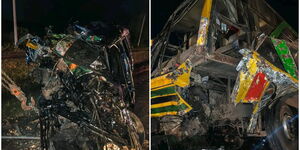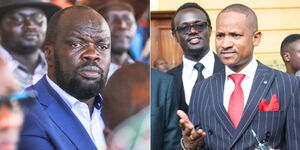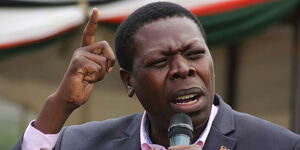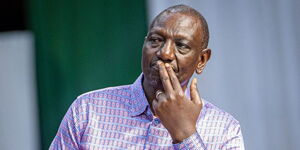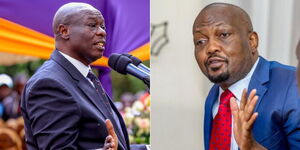The National Assembly now says that it is on the verge of finalising the Transplant and Organ Donation Bill in a move aimed at curbing prevalent cases of organ trafficking in Kenya.
Speaking on Monday, November 10, Health Committee Chairperson and Seme MP James Nyikal said the Bill was currently under review by the Budget and Appropriations committee.
The proposed law seeks to create a legal framework for organ donation and transplantation, with the bill proposing that individuals can decide who they want to donate their organs to.
The Transplant and Organ Donation Bill also seeks to increase the availability of organs being donated, but proposes strict rules with hefty penalties.
Nyikal spoke during a meeting between the National Assembly's Health Committee and doctors from Mediheal Hospital, which is linked to an alleged organ trafficking scheme.
During the meeting, the MPs questioned the Mediheal doctors over the integrity of its kidney transplant programme, amid investigations into allegations of organ harvesting and irregularities in the recruitment of patients for transplantation.
The Health Committee questioned the hospital's Chief Consultant Nephrologist, Srinivas Murthy and Mediheal owner Swarup Mishra, seeking clarification on the hospital’s transplant procedures, donor sourcing, and compliance with medical ethics.
Mishra, who is also the former Kesses MP, lamented misinformation on social media, terming the allegation of Mediheal's involvement in organ trafficking as false. “False statements were made in 2018, 2019, and 2021. We took legal action. It’s time to treat Africans in Africa,” Swarup claimed.
Similarly, Murthy denied any wrongdoing, insisting that all transplants at Mediheal are performed within Kenyan law. “There is no organ harvesting happening in Mediheal or anywhere else in Kenya to my knowledge,” he said.
He explained that Kenya only allows live kidney donations from willing relatives or close acquaintances, unlike countries such as India or the United States, where deceased donor programmes are government-regulated.
“The absence of a deceased donor framework continues to disadvantage patients who lack suitable living donors,” the doctor insisted.
Murphy noted that some patients arrive before starting dialysis, and their conditions are confirmed or worsened upon arrival. “Many come with kidney disease but are not yet on dialysis. We counsel and start dialysis if necessary before transplantation,” the Nephrologist said.

